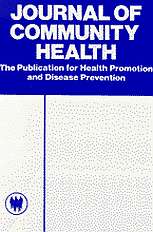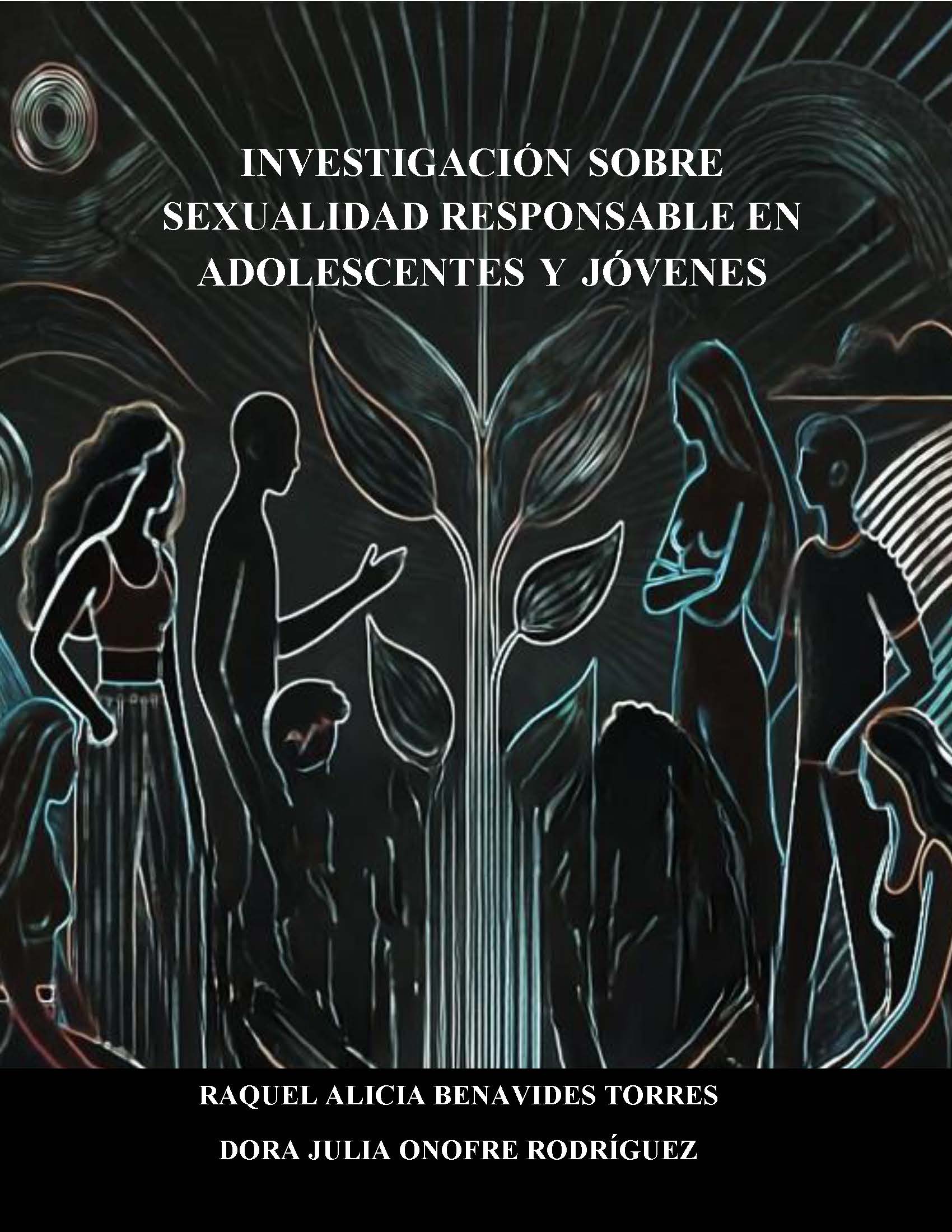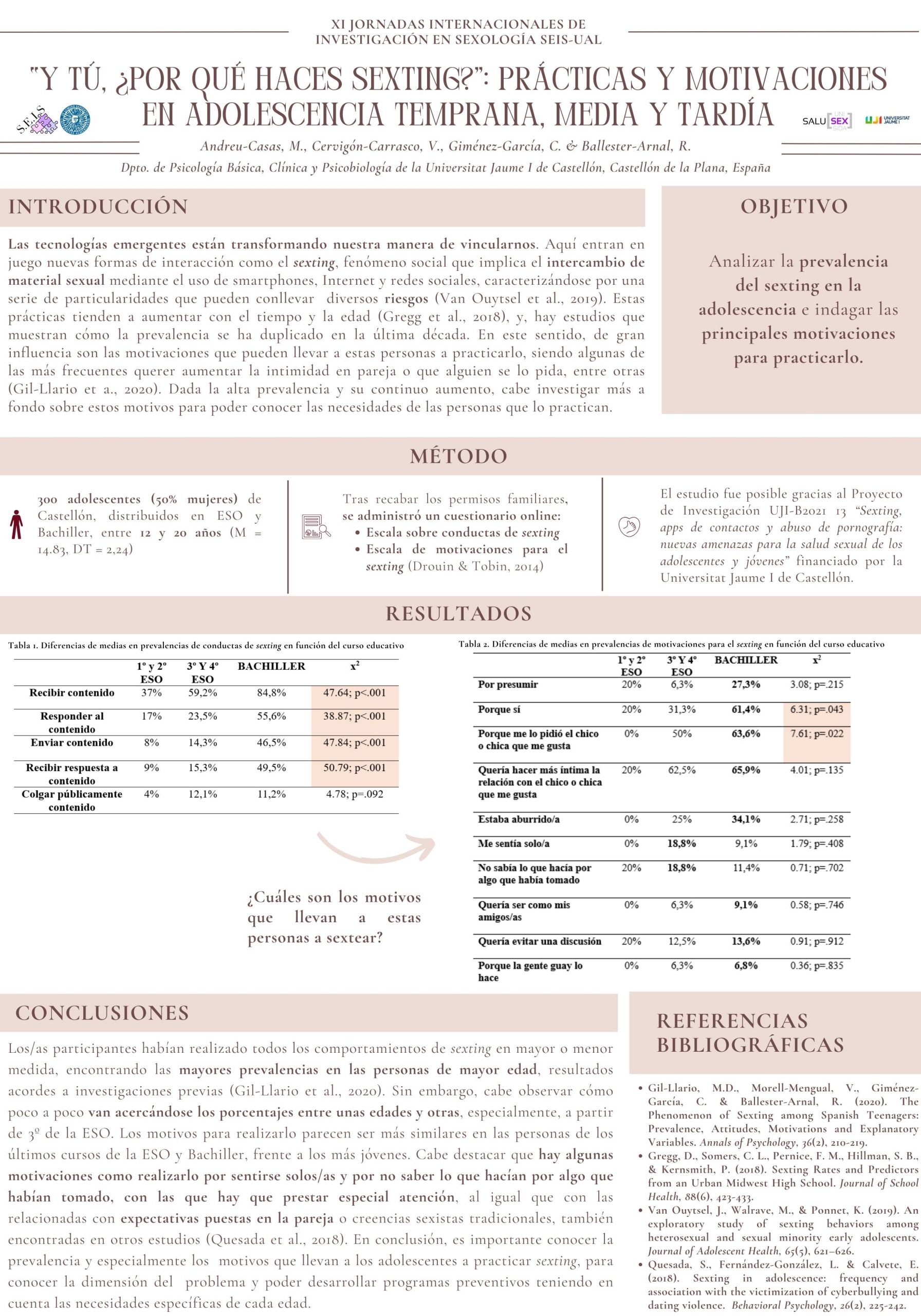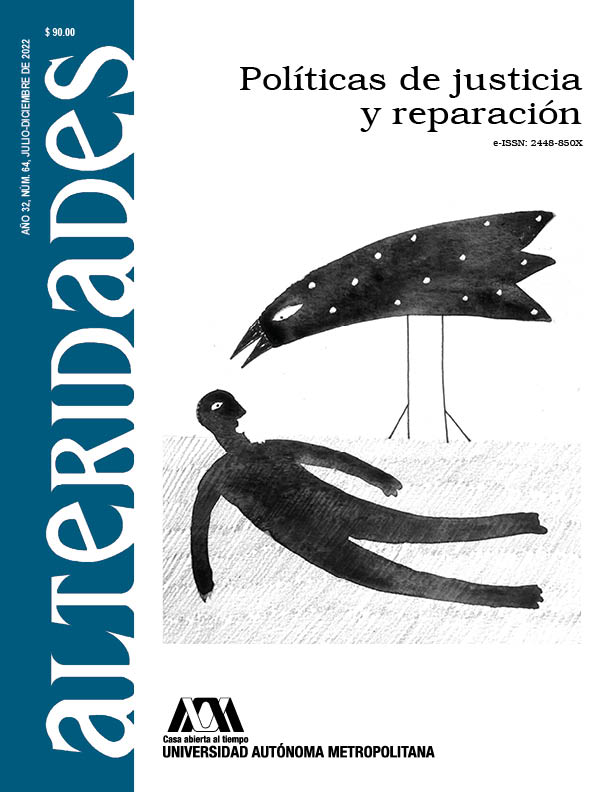Resumen
This study analyzes risk behaviors and attitudes related to HIV-AIDS transmission between young people from two Hispanic/Latino culture and origin (Mexico and Spain). For this purpose, 840 participants filled out the AIDS Prevention Questionnaire (Ballester et al., El “Cuestionario de Prevención del Sida (CPS)”: Análisis de la fiabilidad y validez. Sociedad Española Interdisciplinaria del Sida, San Sebastián, 2007). From the Theory of reasoned action, our results revealed differences between the risk behaviour profiles of young people depending on their origin or gender, in terms of attitudes and behaviours. For example, Mexican participants have exhibited more levels of perceived risk or severity of HIV while for Spaniards, the fear of HIV was higher. Regarding the perception of condom use, loss of pleasure seems to be an important barrier for both groups of Mexican and Spanish young although others, such as lack of information would be reported only for Mexican women. Regarding self-efficacy, there are no significant differences in general but, in specific cases, we found them: Spanish participants seem to be more comfortable with putting on a condom while Mexican participants are more confident when it comes to buying it. However, these Spanish young people have reported more behavioural intention and present condom use in all sexual practices. In general, predictors of condom use are different depending on gender and origin. Thus, in order to develop effective strategies in AIDS prevention, cultural differences for HIV transmission should be considered even inside the group of Hispanic/Latino young people. (Extraído del artículo)






